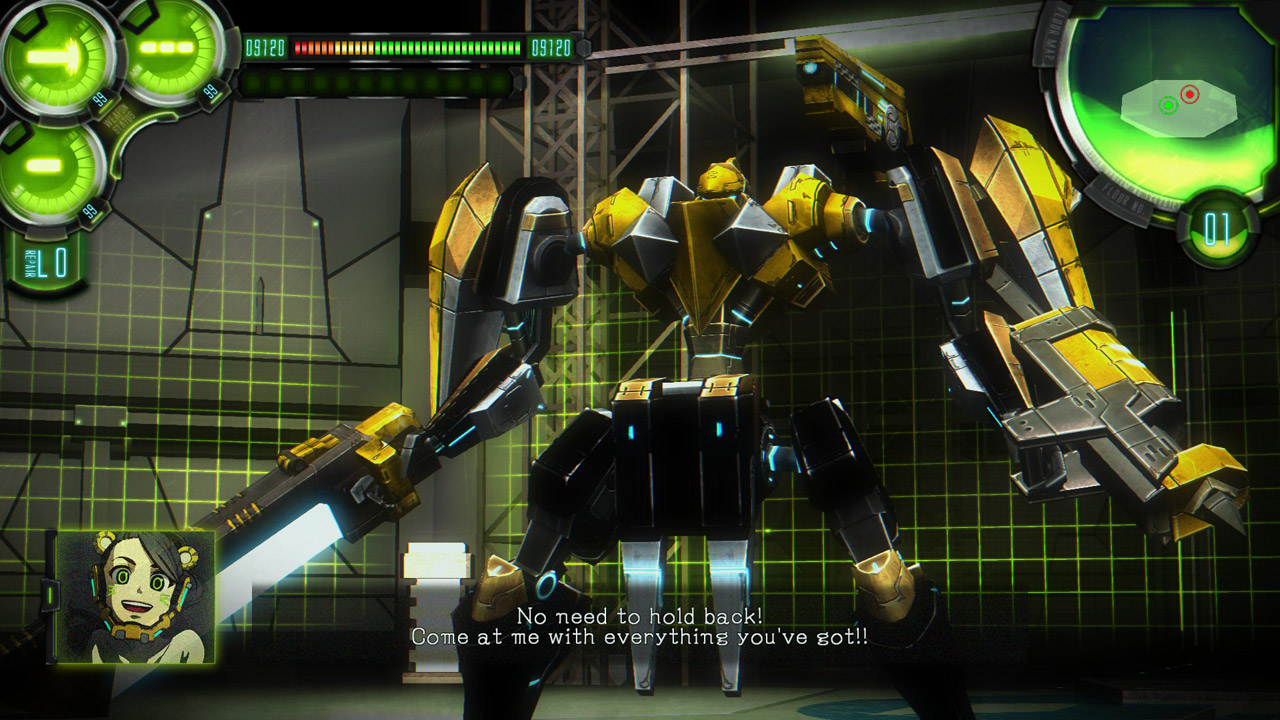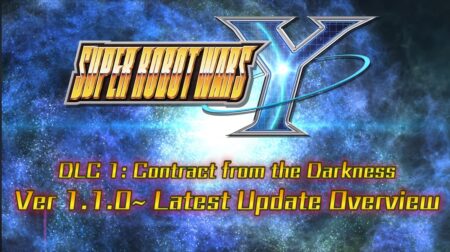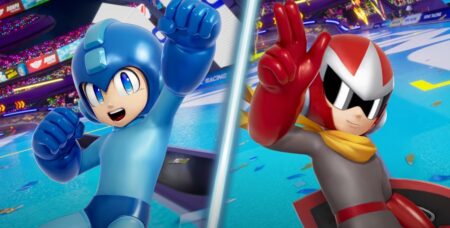So you inherited a GEAR from your parents. What’s the first thing you do with it? Go out and save the world? Use it to gain fame and glory? Sell ad space on it!? Well, too bad. Your GEAR comes with a mountain of debt. Every last bit of money you earn is to pay for the said debt. Look on the bright side – your parents also gave you a witty android sidekick who will do anything to make sure you are out of the red… it’s something.

Platform Reviewed: PS4
Platforms Available: PS4, PS Vita
Developer: Arc System Works
Publisher: Arc System Works
Release Date: March 7, 2018
MSRP: $19.99
This review is based on a review code provided by Arc System Works.
Overview:
In the future, humankind has survived a long war with mechs infected by rogue AI called RAGE, using mechs of their own, called GEARs. They begin anew, carving a living from the ashes of a ruined world. In the aftermath of the war, humans built cities with the hope of recovering the old world’s lost glory. You are a pilot who has inherited one of those GEARs. And before you can do some actual good with your new mech, you have a hefty debt to take care of first.
Gameplay and Features:
Damascus Gear: Operation Osaka at its core is a dungeon crawler/arena fighter game with a hint of RPG elements. Fought from an isometric point-of-view. From the go-to it’s hard not to think of the Armored Core series at first glance. The mech you are piloting comes with 5 separate parts and 3 weapon slots. But unlike the more complex Armored Core, the main attributes are just physical and laser. Physical applies to bullets, missiles, rockets. Laser are all energy based. Melee weapons fall into either category depending on the weapon’s attribute. The RPG element comes into play a little later in the game in which the player levels up and uses a machine to greatly improve your fighting prowess. In other words, it’s just a way to buff up the current stats of the GEAR.
There are 2 ways to progress in the game. In most cases, you are given the option to A) fight in the arena or B) dive into the depths of the city and try your luck at gathering parts and trading resources in for money. You better choose wisely because outside of the occasional story event, the story progresses whether or not you have succeeded. The consequences for failure will set you back a fair bit in your quest to repay your debt. It’s this min-max idea is what gives this game value. You NEED to win battles in the arena to unlock deeper levels of the city, and you NEED to better gear from dungeon runs to fight some of the beasts in the arena.
The arena seems like a safe way to progress, but upon closer look, the only thing you get from it is a very big size pool. The game is forgiving enough that some of the challenges you receive will net you a sizable profit regardless of a win or loss. Your skills will be tested. You have to plan accordingly if you want to take that W.
Dungeon crawling is a big gamble. At the start, your rank only restricts you to exploration up to the 10th floor. Given a few wins, you can explore even deeper parts. You are given missions to do while in the dungeons. While not a requirement to finish the run, the only time the run ends is when you go on a floor with an exit gate, evacuate when you are in danger, or when you die. This is important because your method of return determines what items you can keep from the run. You can keep 20 pieces of loot with a successful return, the rest goes to the government. You might think that evacuating after going deep is a good strategy, it is not. Getting rescued the deeper you go will cost you exponentially. Getting your mech destroyed will only allow you to bring back 5 pieces of loot.

The Good and the Bad:
The game is very stream-lined. There is not much grinding to do, and the only thing to focus on is building a powerful mech that can handle even the toughest of foes. The only time the grind can have an impact at all is when you are trying to match compatible parts to get status effects and buffs. The story is mostly told to you by your android partner. All the events around you are echoed by her through the way of e-mail and after action reports. She is witty, in a way. You will look forward to the next interaction with her… but there’s not much beyond that. There is a shadowy figure that enters your dreams from time to time, but she is cryptic at best. The combat is as simple as it gets. You use your left stick to point and a button to shoot. I do have an issue with the lock-on system as it breaks contact after going out of range. Completely defeating the purpose of a lock-on. Floor gates also break the floor of combat as you step on it, push X, intended to evade, but instead prompts you to go to the next floor.

Final Verdict:
Damascus Gear is a fun little action adventure game. The story may wear out its welcome after the first run, but the possibility of other outcomes from every choice and story events at least merits another play through. The combat isn’t that deep but the rewards are worth it. And planning out pre-arena strategies usually boils down to whether your opponent has a more significant weakness to physical or laser attacks. All in all, if you enjoy the mecha genre, with a hint of RPG elements here and there, this game is for you.







